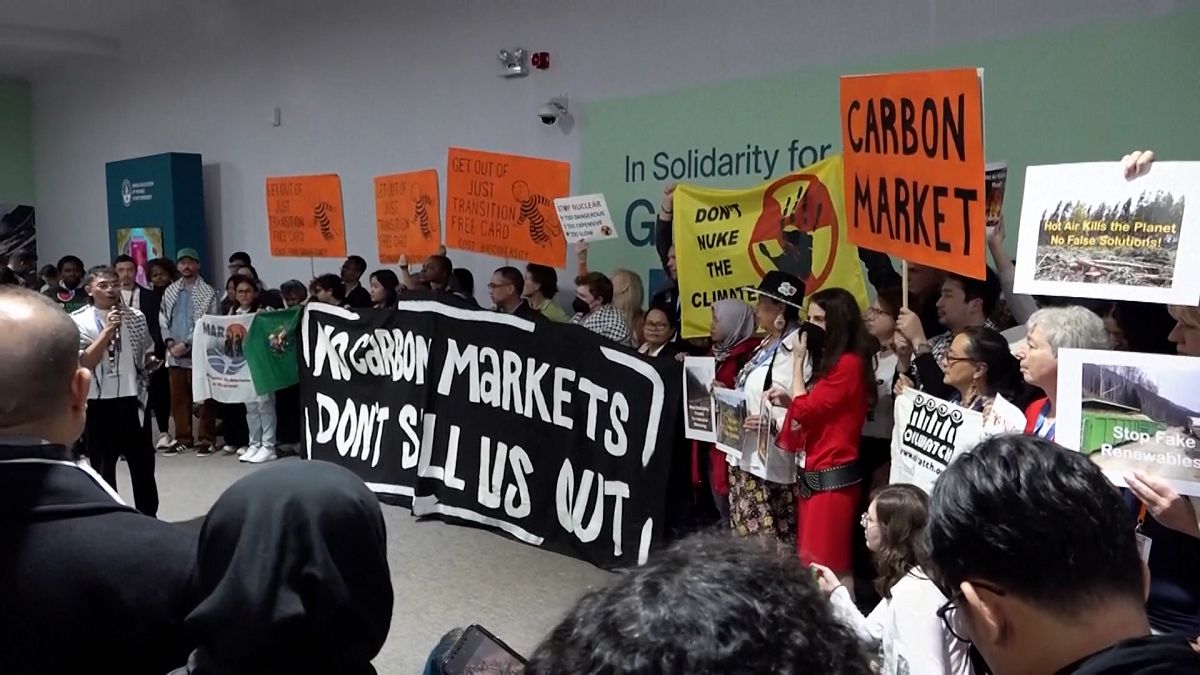Climate justice groups at COP29 in Baku have criticized Article 6 of the Paris Agreement, claiming that it allows the world’s biggest polluters to continue emitting greenhouse gases without making meaningful changes. This approach, they argue, lets these polluters off the hook by allowing them to buy credits instead of reducing emissions at the source. Outside the summit venue, activists used various visual displays to amplify their messages, including a ‘Pay Up’ banner calling for richer countries to contribute more funding to combat climate change. Additionally, some activists advocated for nuclear energy as a safe, low-emission solution to the climate crisis, comparing the radiation from a banana to that of living next to a nuclear plant for a year.
The criticism of Article 6 at COP29 highlights the ongoing debate around how best to address climate change and reduce greenhouse gas emissions. Climate justice groups are concerned that the current approach of allowing polluters to purchase credits instead of cutting emissions at the source will not lead to real, meaningful changes in reducing global emissions. By calling for richer countries to take greater responsibility and contribute more funding to fight climate change, activists are seeking to hold those most responsible for emissions to account and address the urgent need for action.
The use of visual displays, such as banners and symbolic objects like polar bears and bananas, at COP29 demonstrates the creative ways in which activists are working to raise awareness and advocate for solutions to the climate crisis. By drawing attention to the need for action and highlighting the impacts of climate change on vulnerable species, activists are seeking to mobilize support for urgent action to address the climate crisis. The comparison of the radiation from a banana to that of living next to a nuclear plant for a year is a striking way to illustrate the potential benefits of nuclear energy as a low-emission solution.
The debate around Article 6 of the Paris Agreement and the role of nuclear energy in addressing the climate crisis underscores the complex and multifaceted nature of the challenges we face. While some advocate for stricter emissions reductions and greater accountability for polluters, others see nuclear energy as a promising alternative that could help to reduce greenhouse gas emissions. As the world continues to grapple with the impacts of climate change, it is clear that a range of solutions and approaches will be needed to address this urgent and pressing issue.
In conclusion, the criticism of Article 6 at COP29 in Baku reflects the growing awareness and concern around the need for more effective and meaningful action to address climate change. By calling for greater accountability for polluters and advocating for alternative solutions like nuclear energy, activists are working to push for urgent and decisive action to combat the climate crisis. As the world continues to confront the impacts of climate change, it is essential that we work together to find solutions that will help to reduce emissions and protect our planet for future generations. Only by taking bold and decisive action can we hope to address the urgent challenges posed by climate change and create a more sustainable and resilient future for all.











